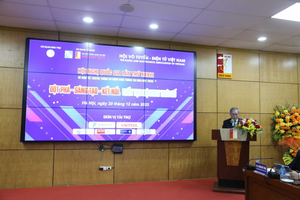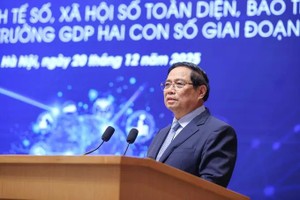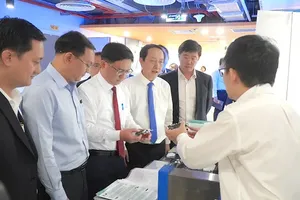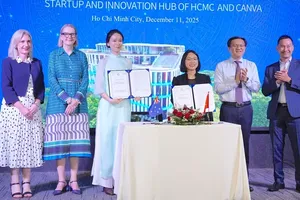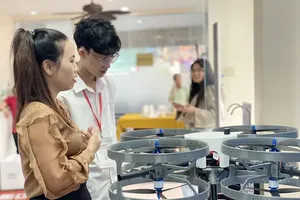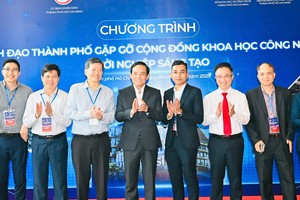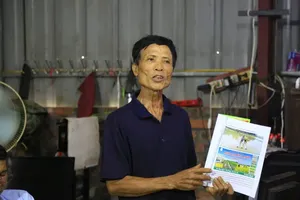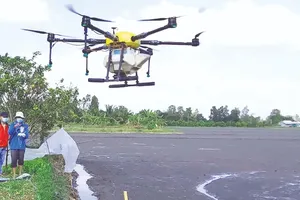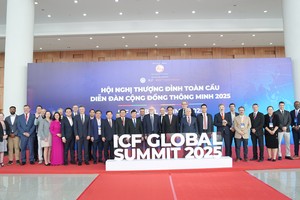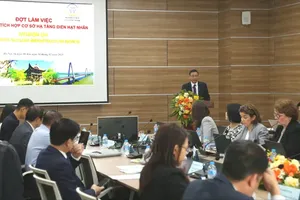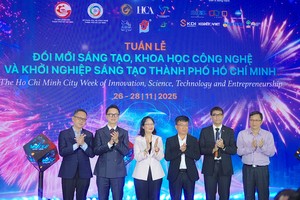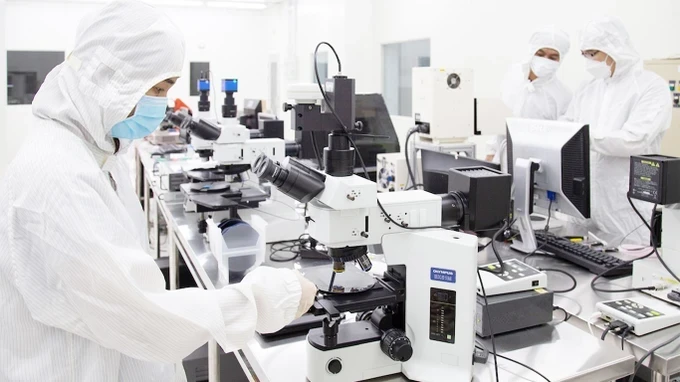
Twelve years have passed since the inception of the Semiconductor Industry Development Program in 2013, with a vision to 2030 (revised in 2017), and the subsequent issuance of Resolution 98/2023/QH15 on piloting specific mechanisms and policies for the development of HCMC.
The strategic priority for attracting investment in the new phase is now projects in the semiconductor integrated circuit industry, including design, component manufacturing, integrated electronic circuits, flexible electronics, and chips, with a minimum investment of VND30 trillion (US$1.22 billion).
The Management Board of Saigon Hi-tech Park (SHTP) stressed in its proposal to the HCMC People’s Committee in August 2023 that it is mandatory to concentrate on developing foundational industries such as electronics and semiconductors, with a focus on domestic enterprises. The proposal highlighted the critical need for high-value-added activities like research and development, design, and the training of a skilled workforce capable of applying and innovating technologies.
Accordingly, the development of the semiconductor industry must be undertaken at a national level, with pioneering initiatives or as a "national laboratory" in the South, as HCMC is currently pursuing. This will facilitate the linkage and leverage of the strengths of the government, universities, and businesses in implementing training programs in electronics and semiconductors.
With a clear national strategy and the specific development strategy for HCMC, the institutional framework is gradually being perfected, and preferential policies for the development of the electronics and semiconductor industry are being vigorously promoted.
The early establishment of concentrated hi-tech zones has created a favorable technological environment. With a majority of Vietnam's 5,000 semiconductor engineers based in HCMC, coupled with the attraction of significant investments from global semiconductor manufacturing companies, numerous opportunities for development are emerging here.
SHTP has established the Electronics and Semiconductor Center (ESC) in collaboration with enterprises to prepare for workforce training. The hi-tech business incubator (under SHTP) has been upgraded into an Innovation Center. The Center for the 4th Industrial Revolution (C4IR) is about to commence operations, serving as a platform connecting experts, international organizations, and large corporations to pilot policy and technology experiments in the semiconductor field.
These initiatives align with the presence of SHTP's three major partners, namely Siemens EDA (Germany), Synopsys, and Cadence (the US), which collectively hold over 80 percent of the global market share in providing design tools and software for automated chip design.
To transform these potential strengths into internal strengths and maintain a national and city-level competitive edge, the electronics and semiconductor industry in Vietnam will require synchronized solutions in conjunction with electronics and semiconductor-related training programs.
The establishment and strengthening of specialized centers and research institutes in the field of electronics and semiconductors is also crucial. Prioritizing the establishment of mechanisms and policies to attract Vietnamese experts and scientists from developed countries, particularly Silicon Valley, is equally important. This talent pool is a valuable asset for technology transfer, training, and developing domestic human resources, thereby accelerating the country's ability to absorb, apply, and innovate technologies.
Furthermore, the implementation of favorable policies regarding corporate income tax and personal income tax to encourage businesses to invest in training and human resource development, and to attract Vietnamese experts and scientists from abroad, is essential.

